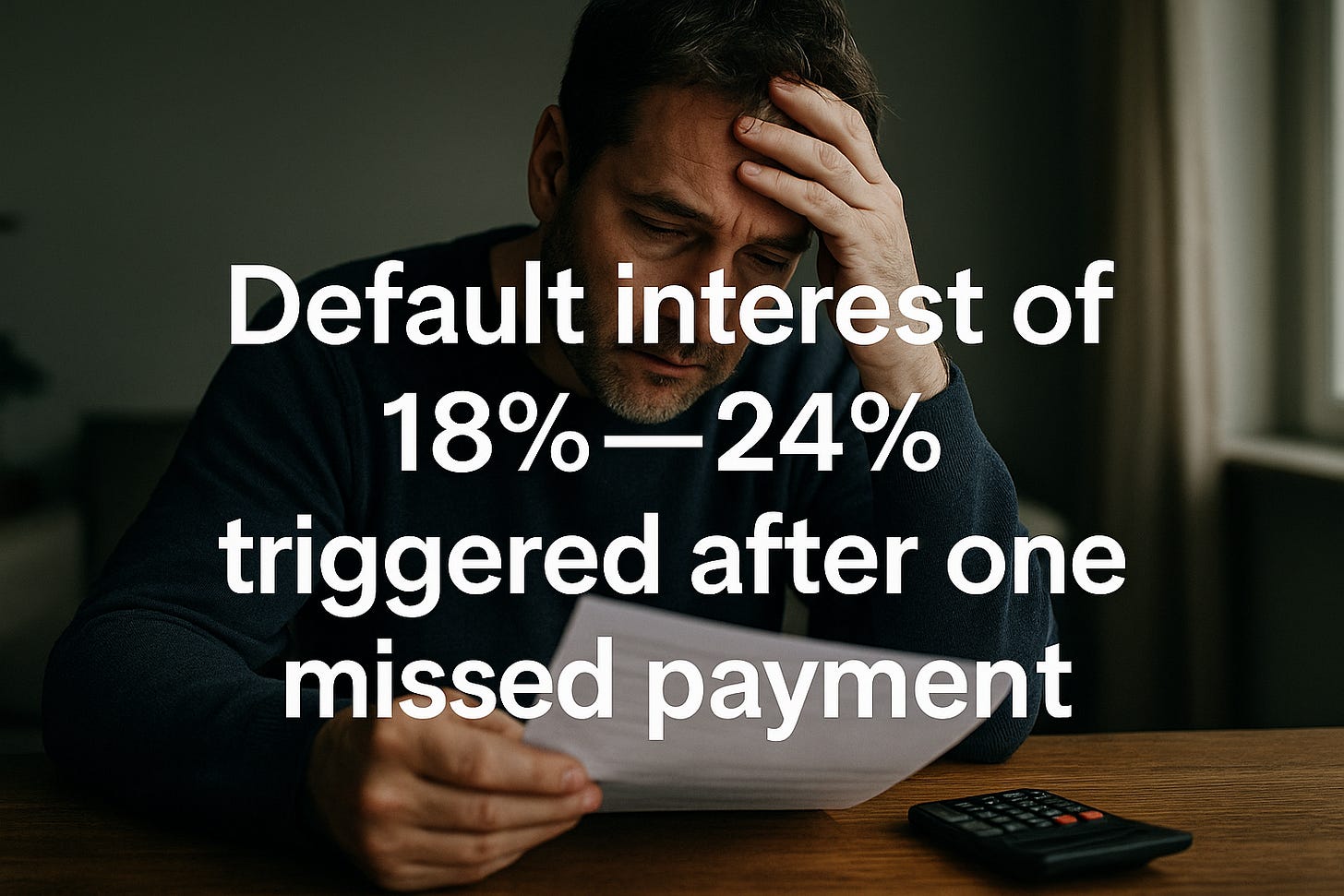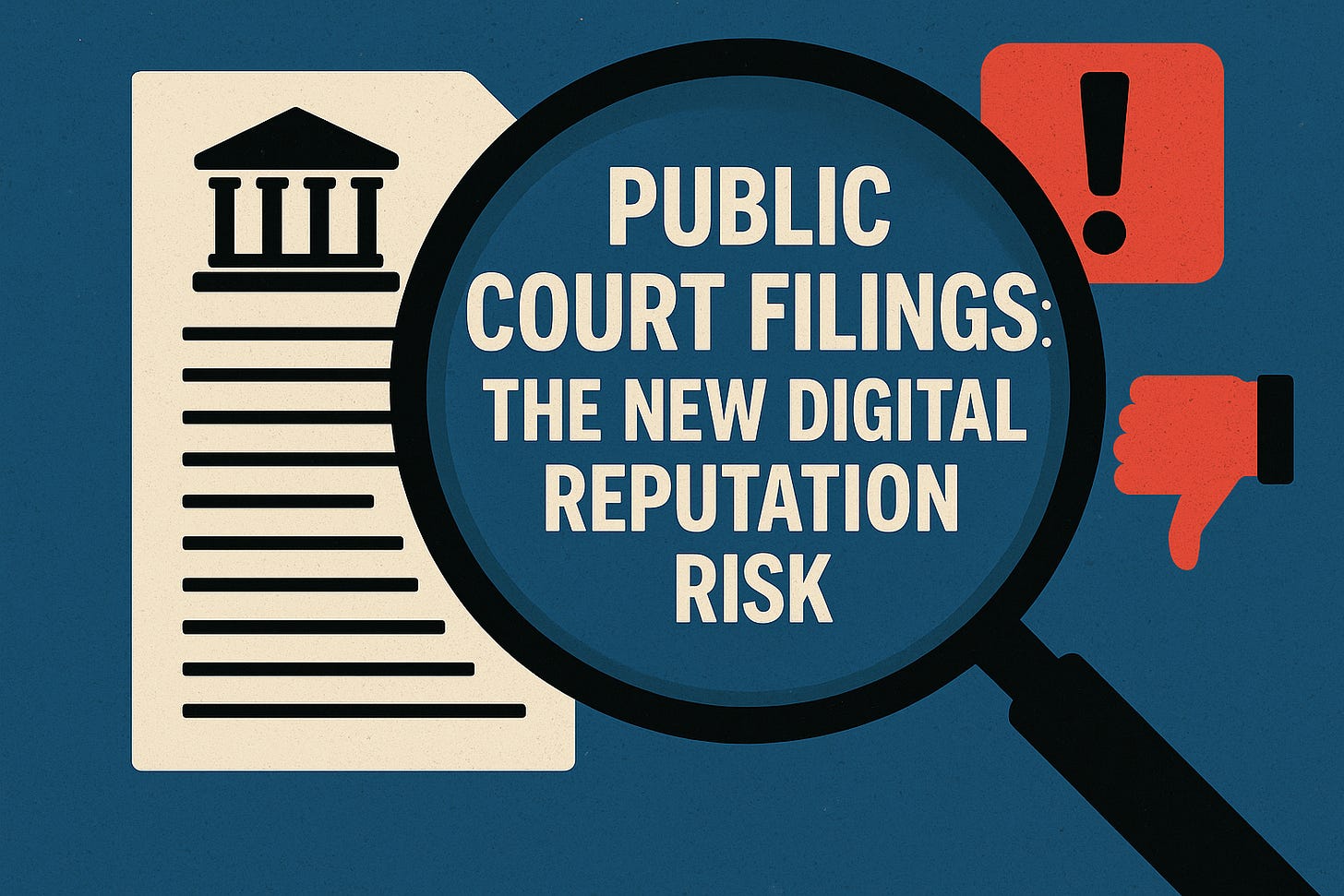“How to Protect Your Business from Predatory Loan Terms: Lessons for 2025”
By Rafael Benavente
Introduction
Access to capital is vital for growing businesses and real estate investments. But in today’s fast-paced lending market, not all capital comes with fair terms. Some lenders operate with practices that catch borrowers off guard — and when disputes arise, borrowers may find themselves entangled in legal battles, sometimes even listed in public court records on sites like Trellis Law.
This blog explores how to spot predatory loan structures, protect your business and personal assets, and take action before minor defaults spiral into lawsuits, foreclosure filings, or asset seizures.
I. The Hidden Cost of Quick Capital
Private lenders — particularly boutique funds and non-bank institutions — are often marketed as fast, easy sources of funding. But the speed of these deals can mask deeper issues in the contract terms.
Red Flags in Loan Agreements:
Default Interest of 18%–24% triggered after one missed payment
Confessions of Judgment that allow immediate asset seizure
Mandatory Arbitration Clauses with hand-picked venues
Loan Fee Stacking with non-refundable due diligence and origination costs
Many of these terms are legal — but they aren’t borrower-friendly. And they often come to light too late.
II. Personal Guarantees: High Leverage for Lenders
One of the most powerful tools private lenders use is the personal guarantee. Even if the loan is made to an LLC or corporation, the lender may demand a personal signature as a condition of funding.
Why That’s Dangerous:
Your home, vehicles, bank accounts, and even future income could be targeted.
Cross-default provisions may link unrelated business loans.
Personal guarantees are often enforced swiftly in court, leaving little time to respond.
Borrowers often don’t realize that signing one piece of paper can put all their assets at risk.
III. Public Court Filings: The New Digital Reputation Risk
Once litigation begins, your name or business could appear in public databases like:
Trellis Law
UniCourt
Justia
PacerMonitor
These listings, often automated, show up in Google results — even before the matter is resolved. For borrowers seeking investors, clients, or partners, this can damage trust and credibility.
Protective Tip:
Legal filings don’t always reflect the full story. You may have been sued unfairly, reached a settlement, or filed for Chapter 11 reorganization — but search engines don’t show that nuance. That’s why proactive reputation management is key (more on that below).
IV. Using Chapter 11 as a Shield
When facing aggressive lenders or unfair lawsuits, U.S. bankruptcy law provides a powerful reset button: Chapter 11.
What Chapter 11 Does:
Stops Collections Cold: The automatic stay halts lawsuits, foreclosures, garnishments, and more.
Allows Restructuring: You can propose new repayment plans over time.
Preserves Assets: Keep appreciating property while negotiating.
Maintains Business Control: Unlike Chapter 7, you remain in charge of your operations.
Chapter 11 is not a failure — it’s a financial strategy used by businesses of all sizes, and even individuals, to stabilize and grow.
V. Protect Yourself Before You Sign
Before accepting funding from a private lender, ask yourself:
Have I reviewed the contract with legal counsel?
Are there predatory terms hidden in the fine print?
Can I negotiate out personal guarantees or limit them?
Is this lender involved in excessive litigation?
Do public records reflect a pattern of borrower disputes?
Due diligence is not optional — especially when the loan amount is tied to high-value assets like real estate, equipment, or intellectual property.
VI. Asset Protection Strategies Every Borrower Should Know
It’s not just about borrowing — it’s about structuring your business to withstand legal pressure. Here are strategies used by smart borrowers in 2025:
Use Separate LLCs for each asset or property
Record Operating Agreements that limit member liability
Buy Adequate Insurance — liability, E&O, umbrella
Avoid Co-Mingling Funds — keep personal and business finances clearly separate
Create Firewall Structures between companies and personal wealth
These strategies are legal, common, and often the difference between surviving a legal attack — or losing everything.
VII. When You’re Already in Trouble: Legal & Reputation Recovery
If you’ve already been hit with a lawsuit or default notice:
Engage counsel immediately
Don’t panic — file a response
Explore a workout, forbearance, or court-mediated plan
Consider Chapter 11 if your income supports a repayment plan
Rebuild your digital reputation with strong, truthful online content
A bad loan or legal filing is not the end. It's the beginning of a smarter, more protective financial future — if you respond with the right strategy.
Final Thoughts: Borrow Smarter, Not Faster
In 2025, borrowing money is easier than ever — but protecting yourself is harder. Some lenders look for strategic defaults to pounce on. Others may rely on legal action to recover more than they loaned out. The system isn’t always fair — but you can be prepared.
Be deliberate. Be protected. And always read the fine print.
By Rafael Benavente
Related Reading:
Author Credit
This article was prepared by Rafael Benavente as part of an ongoing series on borrower rights, legal strategy, and financial resilience. It is for informational purposes only and does not constitute legal advice.


